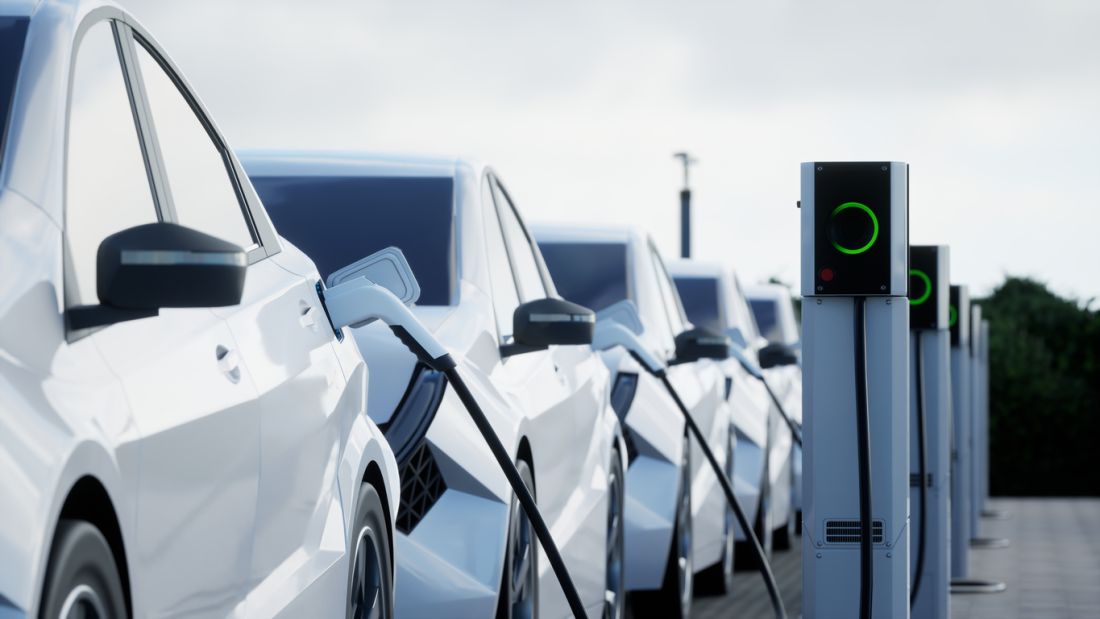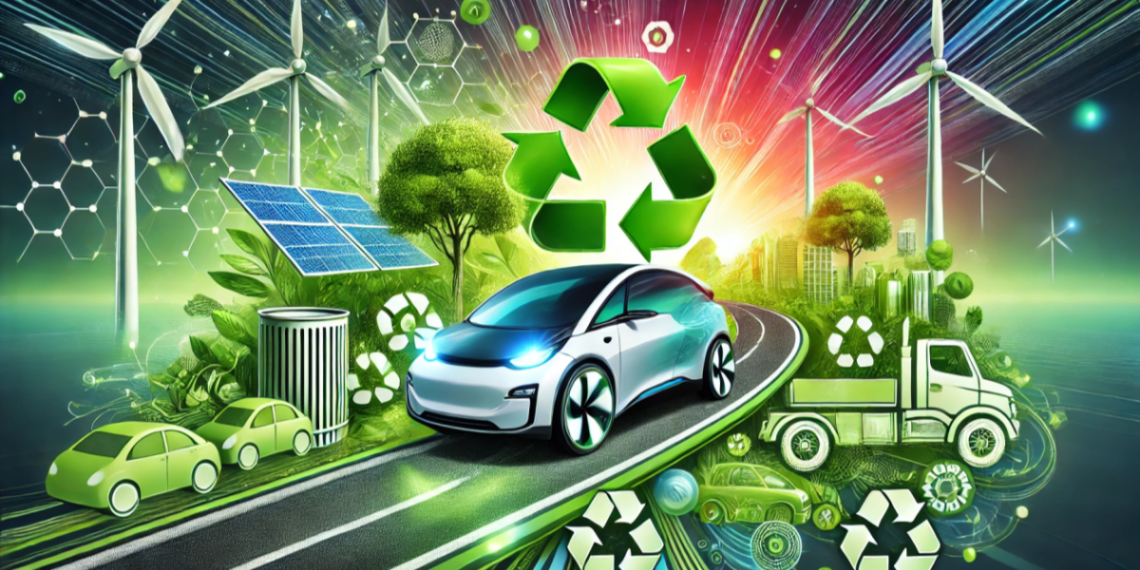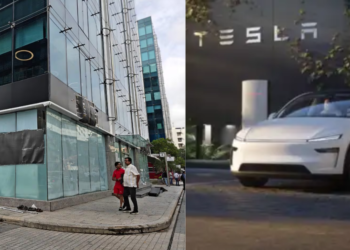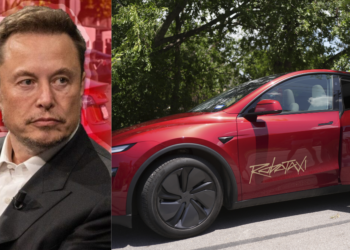New Delhi:
By Goher Ul Islam
In recent years, the global automobile industry has been undergoing a historic transformation. The growing concerns over climate change, air pollution, and the depletion of fossil fuels have pushed nations and industries to search for cleaner alternatives. One such alternative that has gained tremendous momentum is the Electric Vehicle (EV).
By 2025, EVs are no longer a futuristic idea; they are increasingly becoming part of everyday transport across the world. However, like any innovation, they bring both opportunities and challenges. Understanding the advantages and disadvantages of electric vehicles is essential to assess their true impact on the environment, economy, and society.
The Advantages of Electric Vehicles

- Environmentally Friendly Transportation: Perhaps the most significant advantage of EVs is their potential to reduce environmental damage. Unlike petrol or diesel vehicles, EVs produce zero tailpipe emissions. This means less carbon dioxide, nitrogen oxides, and particulate matter in the air directly improving urban air quality. When powered by renewable sources like solar and wind, their carbon footprint reduces even further, making them an essential tool in the fight against global warming.
- Lower Running Costs: While the purchase price of EVs can be high, the cost of operating them is comparatively much lower. Charging a battery is often cheaper than refueling with petrol or diesel. Moreover, EVs have fewer moving parts, eliminating the need for frequent oil changes, exhaust system repairs, or fuel pump replacements. Over time, this makes them more economical for consumers.
- Energy Efficiency: EVs are far more energy-efficient than traditional combustion-engine vehicles. On average, EVs convert more than 60% of the electrical energy from the grid into vehicle power, whereas conventional cars convert only about 20–30% of the energy stored in fuel. This means EVs make better use of the energy they consume, reducing wastage.
- Government Incentives and Support: Many governments worldwide are actively encouraging the adoption of EVs. Incentives include subsidies on purchase price, reduced road taxes, toll exemptions, and even free or discounted parking in some cities. Such policies not only reduce the financial burden on consumers but also accelerate the shift toward clean transportation.
- Quieter and Smoother Ride: Another notable advantage is the quietness of EVs. Unlike the constant rumble of combustion engines, electric motors run silently, reducing noise pollution in cities. They also provide instant torque, resulting in faster and smoother acceleration a feature many drivers appreciate.
- Energy Independence: EVs can reduce a nation’s dependency on imported oil. By promoting renewable energy and domestic power generation, countries can achieve greater energy security while also boosting their green economy.
The Disadvantages of Electric Vehicles

- Limited Driving Range: Despite improvements in battery technology, many EVs still have a shorter driving range compared to traditional cars. While some premium models can travel 400–500 kilometers on a single charge, most budget-friendly options offer less, making long journeys difficult without frequent recharging.
- Insufficient Charging Infrastructure: One of the major barriers to widespread EV adoption is the lack of charging stations. In metropolitan cities, charging points are slowly increasing, but in rural and semi-urban areas, they are still scarce. Additionally, charging an EV can take anywhere from 30 minutes (with fast chargers) to several hours (with standard chargers), which is inconvenient compared to a quick refuel at a petrol station.
- High Initial Purchase Cost: Although running costs are low, EVs are still more expensive to buy than petrol or diesel cars. The main reason is the high cost of lithium-ion batteries. While prices are expected to fall in the future, affordability remains a major hurdle, particularly in developing countries.
- Battery Life and Environmental Concerns: EV batteries degrade over time, leading to reduced efficiency and range. Replacing a battery is costly, and improper disposal can harm the environment. Moreover, mining for lithium, cobalt, and other rare metals used in batteries raises concerns about ecological damage and unethical labor practices.
- Dependence on Electricity Sources: The environmental benefits of EVs largely depend on how electricity is produced. In countries where power is generated mainly from coal, EVs may still indirectly contribute to pollution and greenhouse gas emissions. Until the energy grid shifts to cleaner alternatives, the “green” label of EVs remains partially limited.
- Limited Model Availability: While the EV market is expanding, consumers still have fewer choices compared to conventional vehicles. Options are largely limited to certain segments, and budget-friendly models are especially scarce in developing economies.
Also Read: The Continuing Echo Of The COVID-19 Pandemic In 2025
Electric Vehicles are the future :With zero tailpipe emissions and nearly three times the efficiency of ICE vehicles, EVs are central to India’s tech transformation.
anufacturing.
Sticking with hybrids or ICE vehicles today is akin to investing in typewriters in the age of… pic.twitter.com/9MkqI7H03C— Amitabh Kant (@amitabhk87) July 9, 2025
Striking a Balance: The Future of EVs
Electric vehicles are not a perfect solution, but they are undeniably an important step toward a sustainable future. They reduce dependence on fossil fuels, improve air quality, and push technological innovation in clean energy. At the same time, they face obstacles such as affordability, infrastructure gaps, and environmental concerns linked to battery production.
The coming decade will be crucial. Governments, industries, and researchers must work together to make EVs more affordable, extend their range, and ensure that batteries are produced and disposed of responsibly. With ongoing advancements in solid-state batteries, renewable charging grids, and recycling technologies, the disadvantages may gradually diminish.
The debate over electric vehicles is not about whether they are good or bad it is about how fast we can overcome their challenges. EVs are not just a mode of transport; they represent a shift in how societies view mobility, energy, and sustainability. As of 2025, they are a growing reality, and with the right investments and policies, they have the potential to become the backbone of global transportation in the near future.
In the long run, the success of electric vehicles will depend on balancing their advantages with solutions to their disadvantages. What is certain is that the world is moving toward cleaner, smarter, and more sustainable ways of traveling and EVs are at the heart of that journey.













